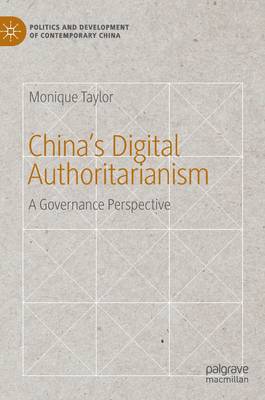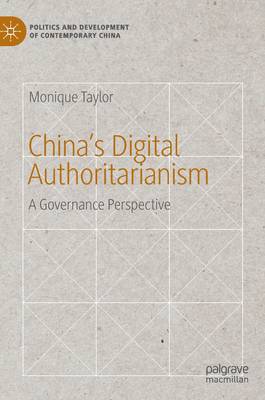
- Afhalen na 1 uur in een winkel met voorraad
- Gratis thuislevering in België vanaf € 30
- Ruim aanbod met 7 miljoen producten
- Afhalen na 1 uur in een winkel met voorraad
- Gratis thuislevering in België vanaf € 30
- Ruim aanbod met 7 miljoen producten
Zoeken
Omschrijving
This book provides a governance perspective on China's digital authoritarianism by examining the political and institutional dynamics of the country's internet sector in a historical context. Using leading theories of authoritarian institutions, it discusses China's approach to the internet and methods of implementation in terms of party-state institutions and policy processes. This provides a much-needed 'inside out' perspective on digital authoritarianism that avoids the perception of China as some coherent and static monolith. The study also offers a powerful rationale for China's cyber sovereignty as an externalisation of its domestic internet governance framework and broader political-economic context. As China shifts from rule-taker to rule-maker in world politics, the Chinese Dream (zhongguo meng) is now going global. Beijing's digital authoritarian toolkit is being promoted and exported to other authoritarian regimes, making China a major driver of digital repression at the global level.
Specificaties
Betrokkenen
- Auteur(s):
- Uitgeverij:
Inhoud
- Aantal bladzijden:
- 169
- Taal:
- Engels
- Reeks:
Eigenschappen
- Productcode (EAN):
- 9783031112515
- Verschijningsdatum:
- 25/08/2022
- Uitvoering:
- Hardcover
- Formaat:
- Genaaid
- Afmetingen:
- 148 mm x 210 mm
- Gewicht:
- 376 g

Alleen bij Standaard Boekhandel
+ 94 punten op je klantenkaart van Standaard Boekhandel
Beoordelingen
We publiceren alleen reviews die voldoen aan de voorwaarden voor reviews. Bekijk onze voorwaarden voor reviews.











